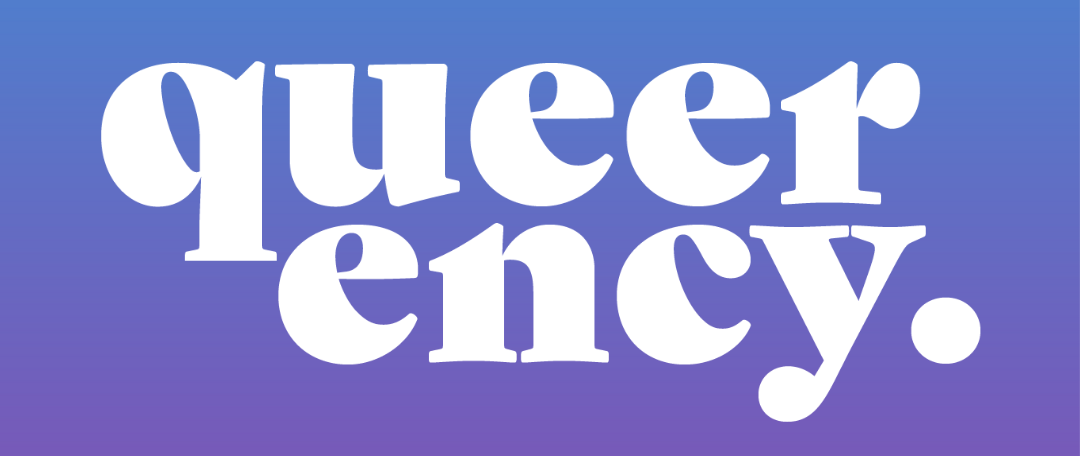On Friday, December 1, we hosted our first LGBTQ+ Business Week Virtual Summit, which featured 30 entrepreneurs who shared insights about starting their own business and navigating the queer economy.
If you weren’t able to attend the summit, head to the LGBTQ+ Business Week website to watch the recordings of each session.
Here are some of the top takeaways from the 9 panel discussions at the Virtual Summit.
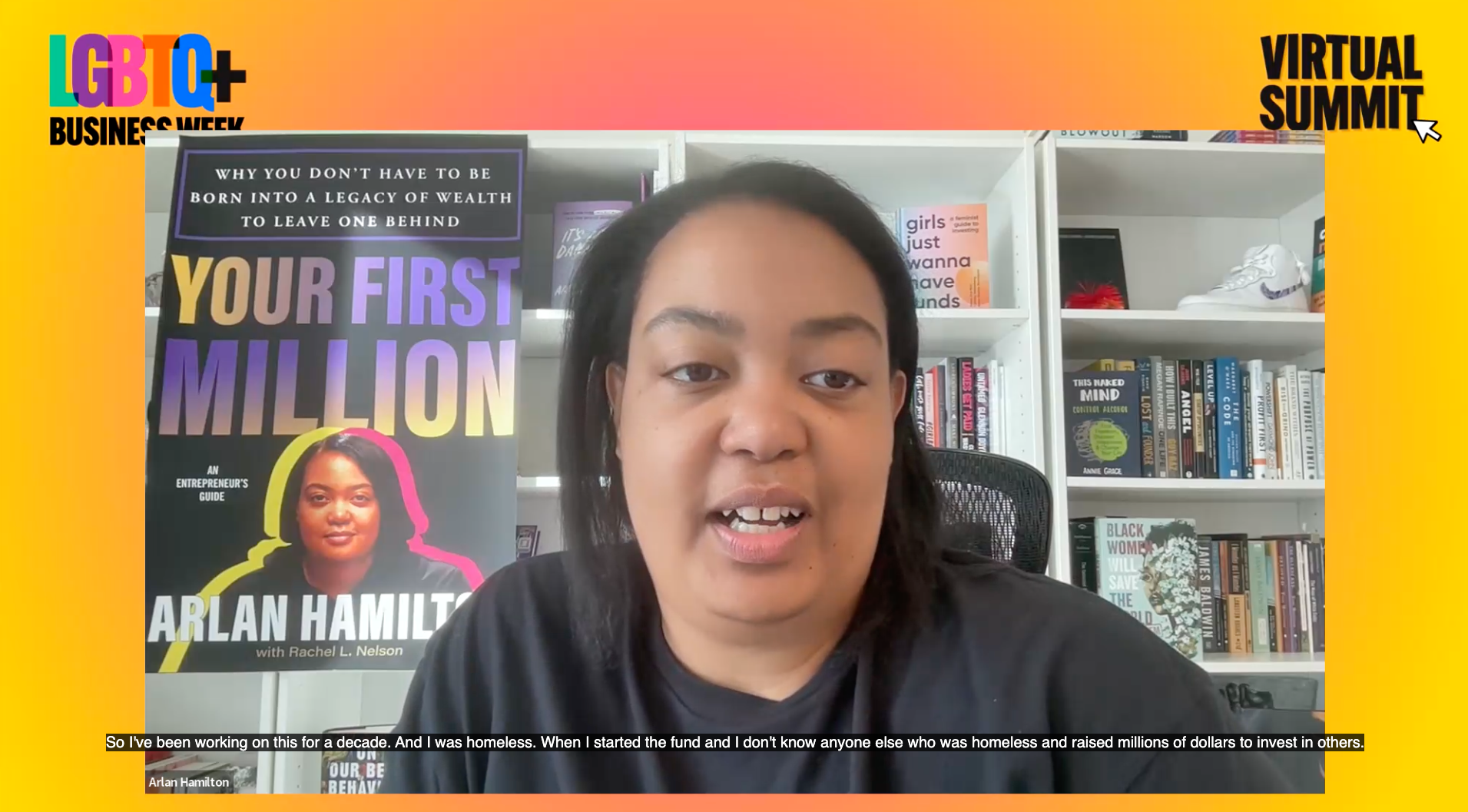
Wait a few years before taking outside funding
Investor Arlan Hamilton, a venture capitalist who invests in other BIPOC and LGBTQ+ businesses, encourages entrepreneurs to shift their money mindset to get their businesses funded.
However, she added, “50% of the time, I do advocate for you not taking outside funding. And if you do take outside funding, take it later in the life of your company.”
Hamilton said, “Entrepreneurs tend to give away too much equity in their company too early.” She gave an example from her own life. “This one guy in Europe said he would give me $7,000 in exchange for a small percentage of my future income.”
She reached out to her mentor, film director and television producer, Angela Robinson, who said, “I won’t allow it. You have no idea how successful you’re about to be.”
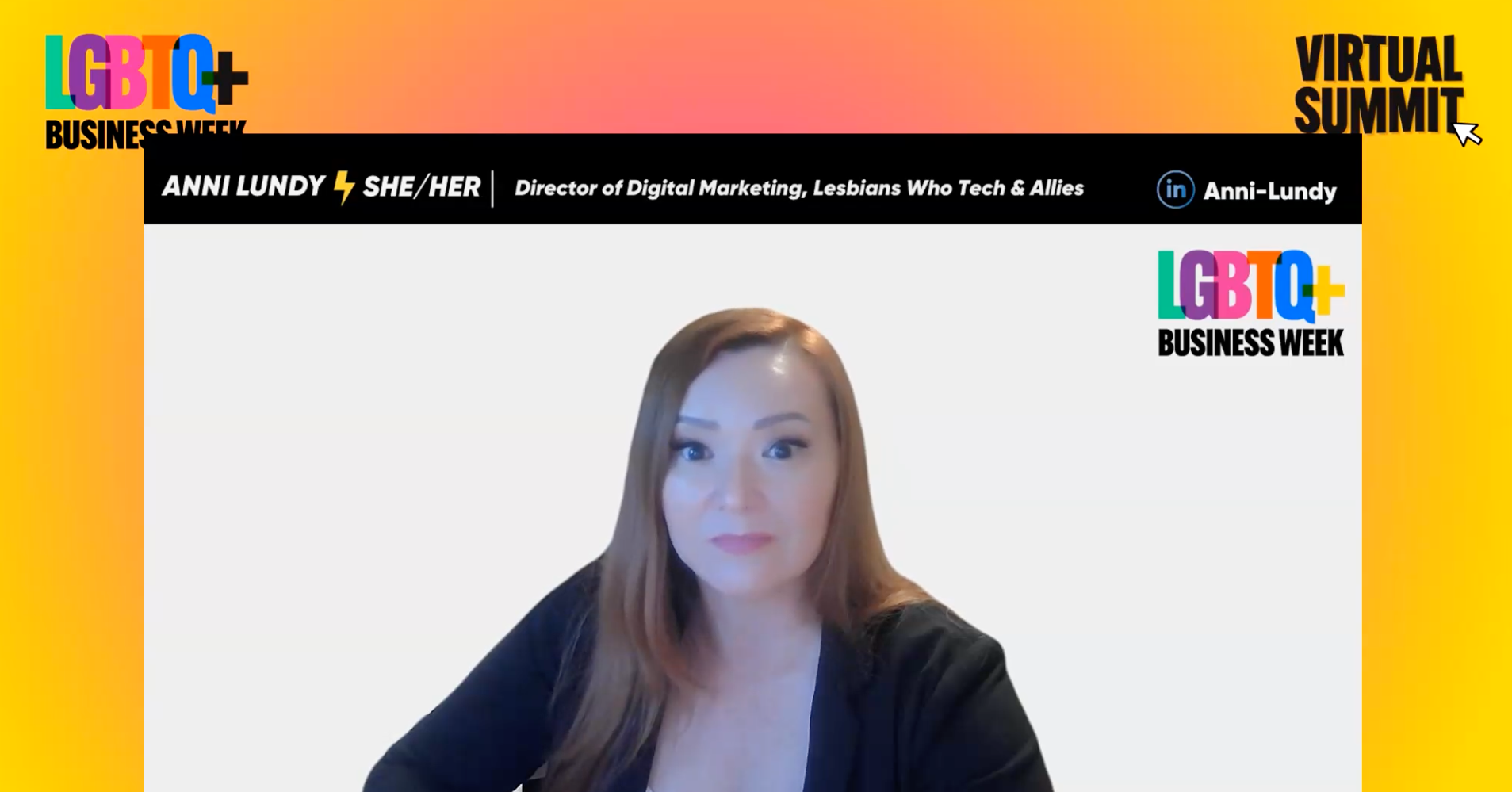
Use ethically driven business models
In the Tech Today for LGBTQ+ panel, Anni Lundy, director of digital marketing at Lesbians Who Tech + Allies, says it’s time for entrepreneurs to embrace ethically-driven business models and marketing techniques to align with their products and services.
“We are in the most ethically driven economy we’ve ever been in,” she said. “So if we’re gonna spend [money] that way, it is only justified that we market this way.”
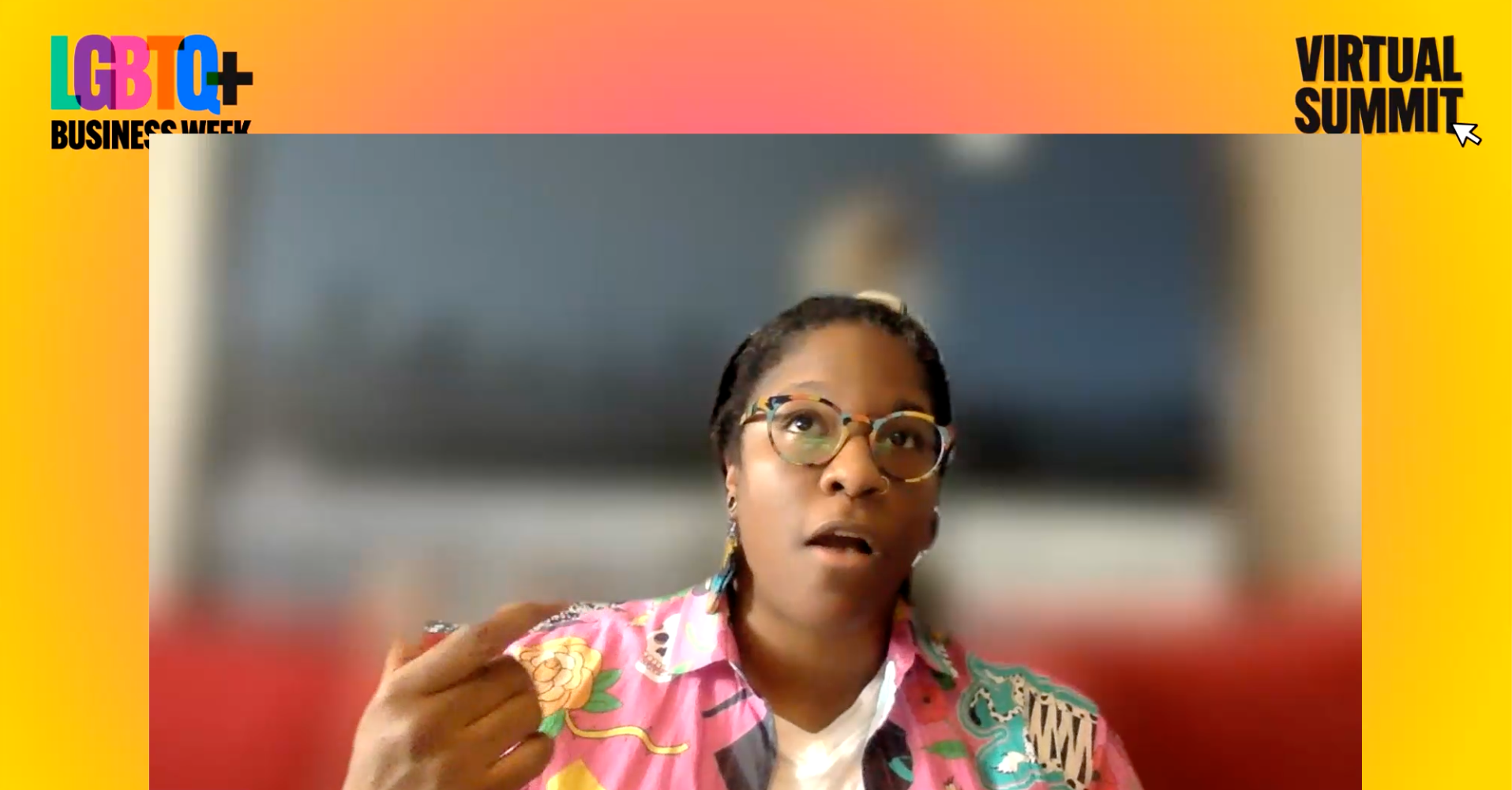
Hire a bookkeeper
During the Body and Sex Positivity as a Career panel, Nikeisah Newton (founder of Meals 4 Heels) and Rey Reséndez (health and fitness entrepreneur) talk about the ongoing stigma that sex workers face while running spicy businesses.
One practical tip from Newton: “Pay attention to your books.”
Make sure you have a bookkeeper who is checking your profit and loss every month. If your organization chooses to support other groups, Newton suggests having an account set aside “where 10% of X amount always goes to that special account.”
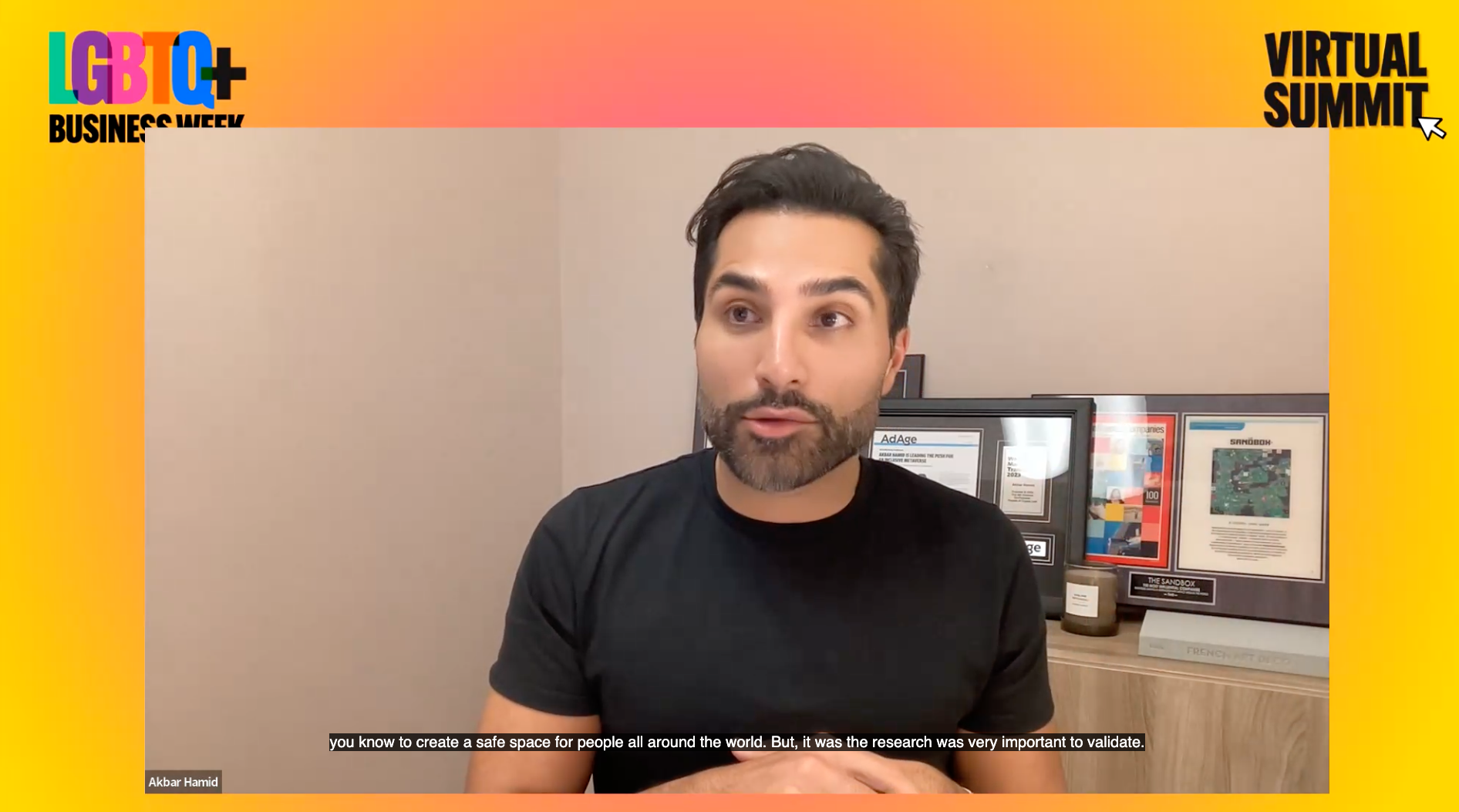
Conduct thorough market research
Founders Charlie (Everywhere is Queer), Akbar Hamid (5th Column), Spencer Hoddeson (Gay Water) and Charlie Ocean (GenderSexuality) spoke about what it takes to take a business to market from the ideation stage. Every founder on the panel spoke about the importance of doing thorough market research.
Hamid talked about developing a sunscreen without white cast for a beauty brand called Live Tinted. “People of color make up 84% of the world’s population. So there’s a massive need for products that don’t have white cast,” he said.
On the other hand, both Charlie and Hoddeson said that social media platforms were crucial in conducting their market research. Hoddeson said, “Social platforms like TikTok are so forgiving. If you throw out a concept, you’ll see quickly if people are interested or not.”
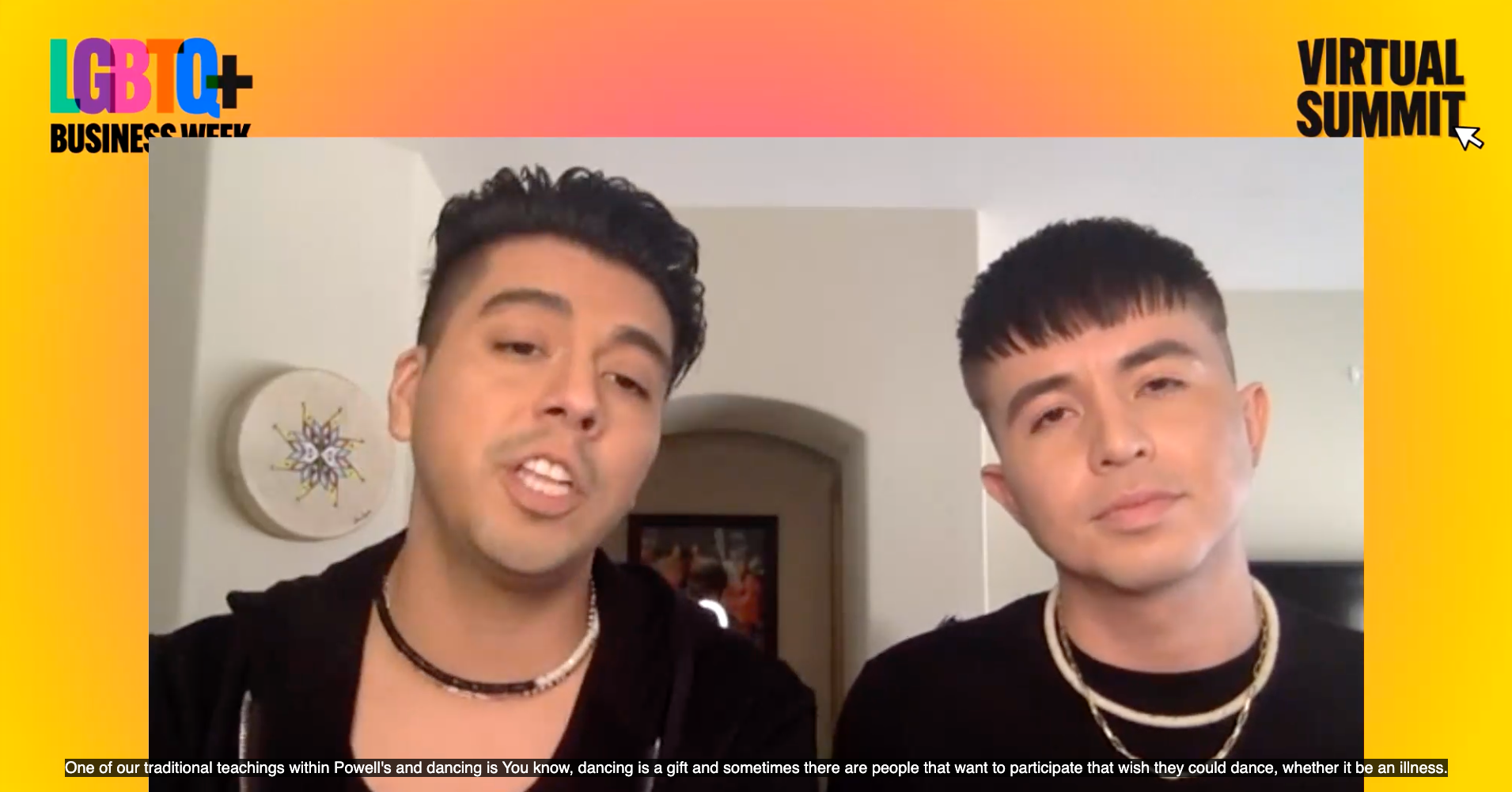
Advocate for yourself as fiercely as you do for your community
For the Advocacy Through Art panel, NiK Kacy (Queer Prom, Equality Fashion Week, NiK Kacy Footwear), Sean Snyder and Adrian Stephens (S & S Mercantile), and Adam Powell (ShopQueer.co, The Rainbow Book Bus) discussed the importance of advocating for yourself as fiercely as you advocate for the causes you believe in.
Snyder and Stevens are both members of Indigenous tribes and have experience as cultural facilitators. Snyder said, “Your cultural knowledge is valuable,” encouraging artists and creatives to charge higher rates for their work and advocacy.
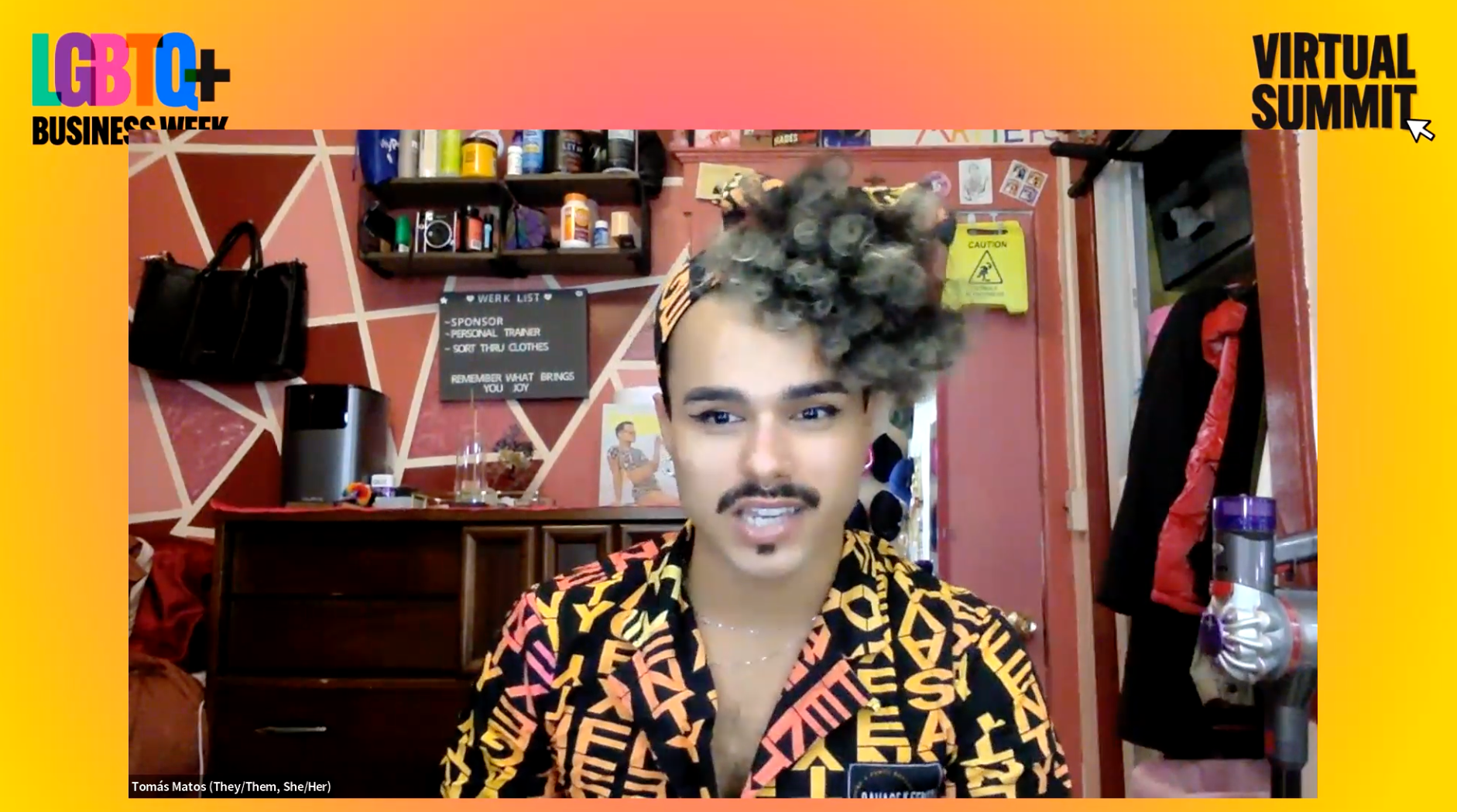
Visibility on social media comes with its challenges, but making others feel seen is worth it
In the Creator Economy panel moderated by Anna DeShawn, founder and CEO of E3 Radio, influencers Tomás Matos and Ruba discuss the importance of being authentic to growing a loyal following on social media.
There are unique challenges that come with having such a large following, like making sure you’re balancing the amount of paid versus unpaid content you post on your feed or dealing with the naysayers and trolls online.
However, Matos said, “That one person that commented, ‘Thank you so much for posting this! You made me feel more seen!’ that literally just relieves all of the stress.”
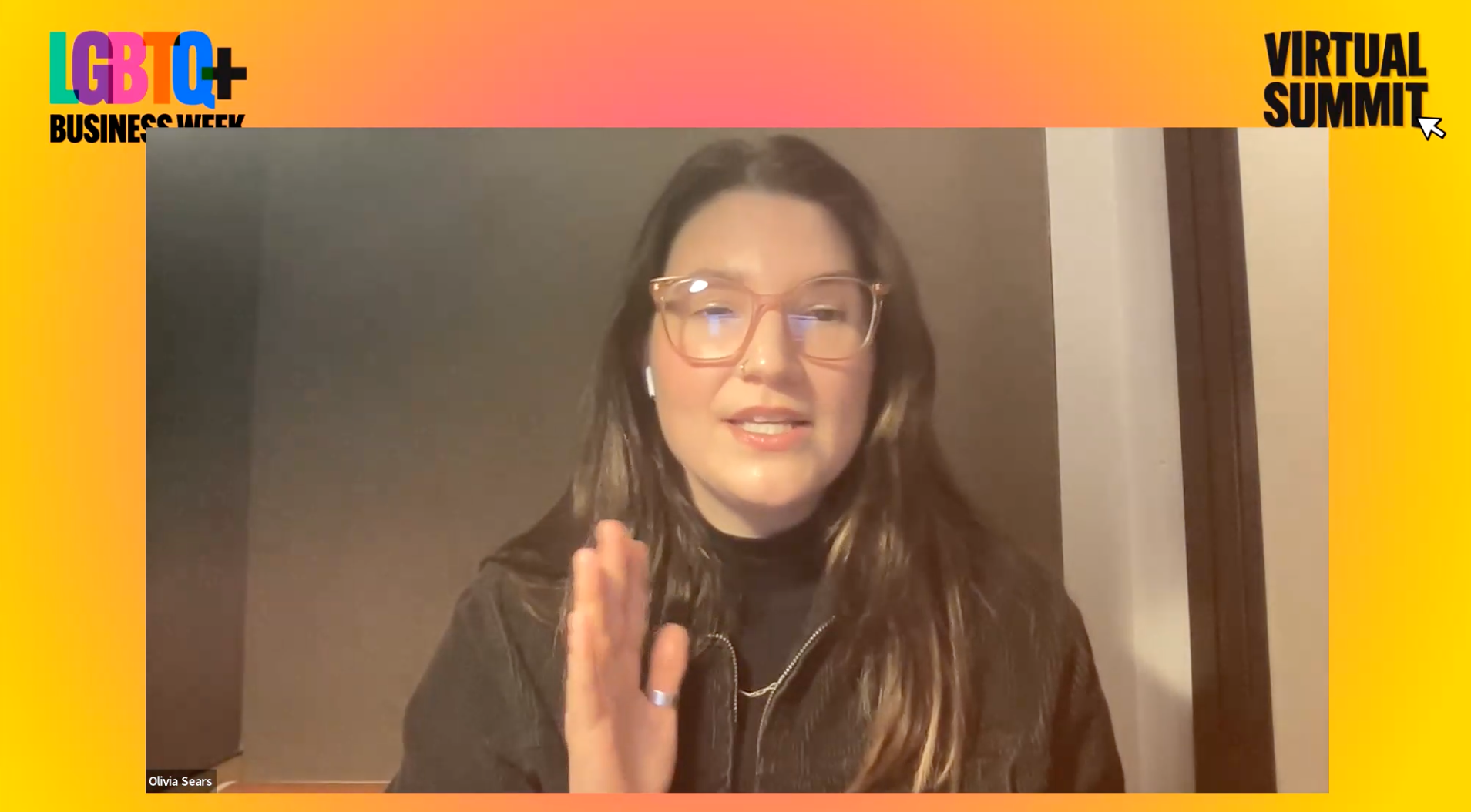
When working with loved ones, create strong boundaries
In conversation with LGBTQ+ Business Week’s producer Ricardo Sebastián, romantic partners and co-founders of BuzzCutt Olivia and Sarah Sears said it’s crucial to set boundaries around your physical space, mental space, and emotional space when starting a business with someone you love.
Here are four steps they recommend taking when working with a significant other or family member:
- Instead of finding 30-minute blocks of time each day to work on your business, block out larger amounts of time, usually one weekday and one weekend day to get more done.
- Over-communicate your needs and boundaries, especially when you both work from home.
- Send each other emails with ideas instead of interrupting each other while working on other projects.
- Create a project-tracking document to help juggle different priorities.
- Niche, independent businesses are on the rise
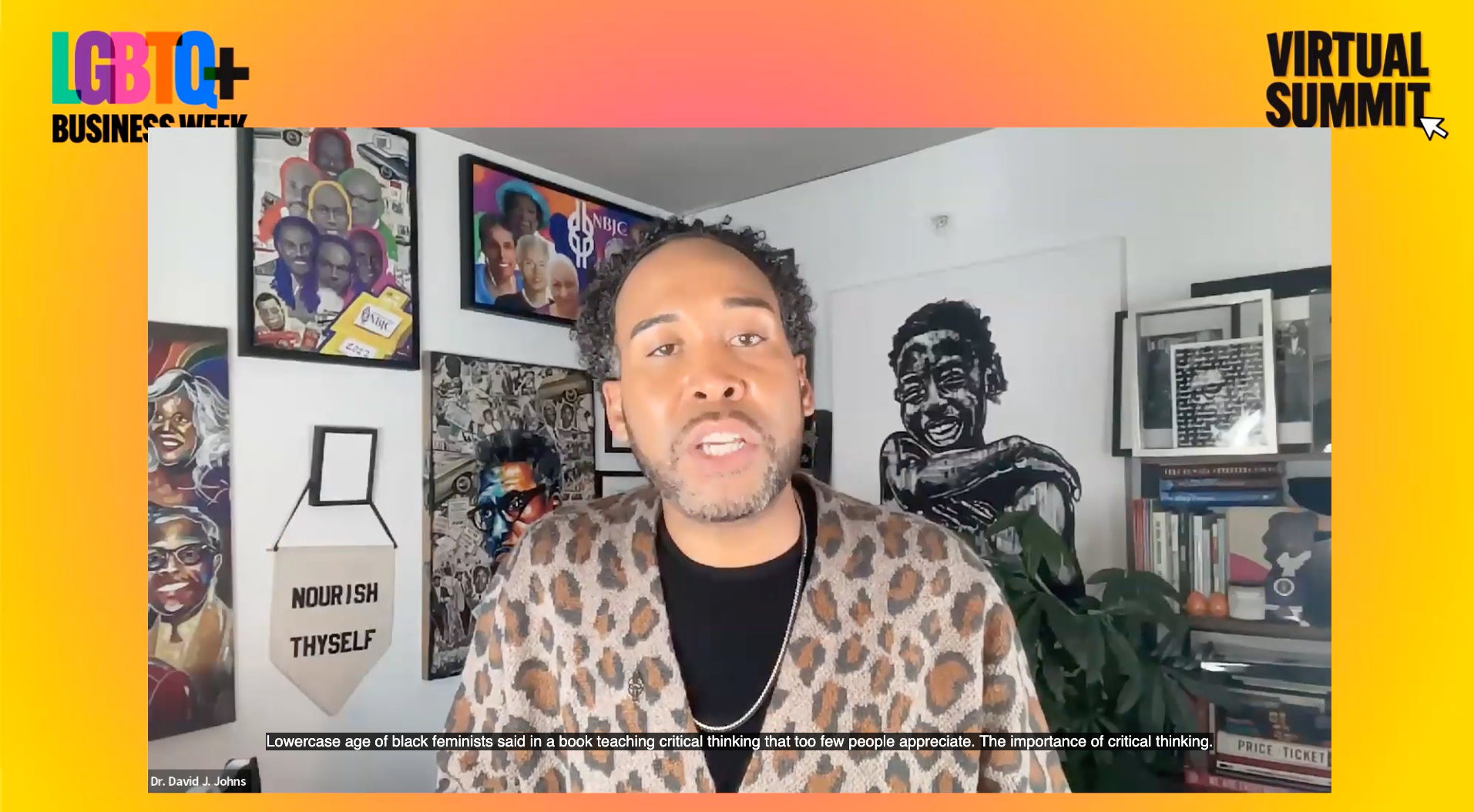
Activism for Palestine can be channeled into shaping policies in our own backyard
Panelists Dr. David J. Johns, executive director of the National Black Justice Coalition, and Lalo Vargas, LA City Council District 14 socialist candidate, joined activist and astrologist Blossom Brown to predict how the 2024 election year will affect queer, trans, and BIPOC communities.
Dr. Johns said, “It’s hard times out here, and if people are not mindful of the fact that all politics are local, and that politics affects our lives on a daily basis, that we have to be engaged — if we ain’t gonna get here now, I don’t know when we’re gonna get here.”
Next, the panelists discussed the ways that Palestine is mobilizing people to get more involved in shaping the policies that affect their own local communities.
Vargas encouraged community members to seize momentum from political protests for Palestine as an entry point for local issues. He added, “We see the government bailing out huge corporations, but then working people, small business owners, we’re fighting over scraps.”
